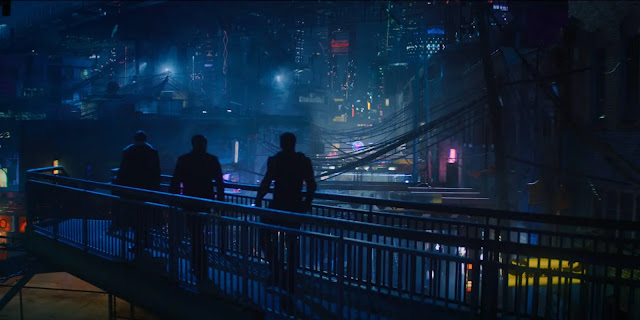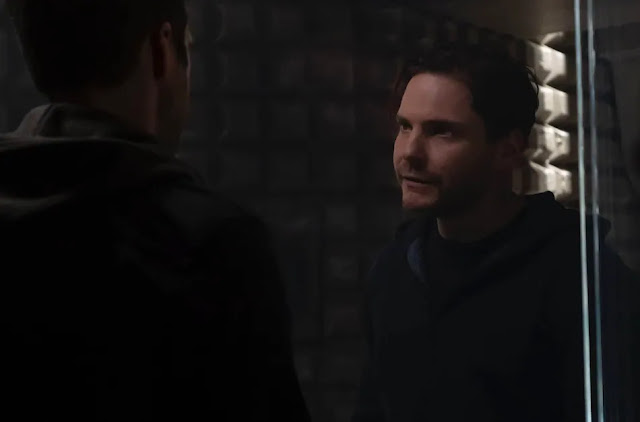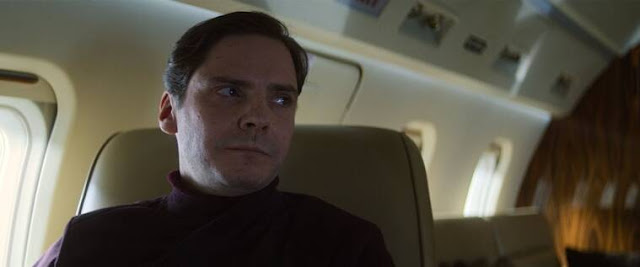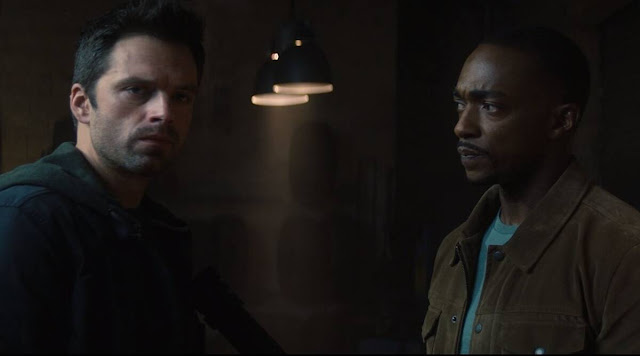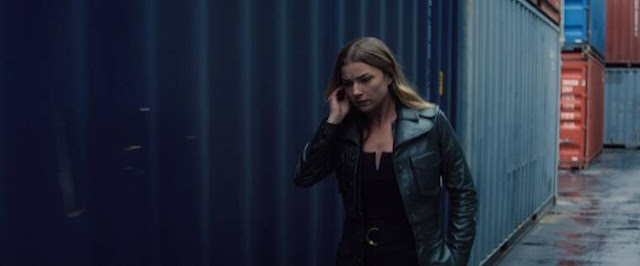The Falcon and The Winter Soldier: Season 1, Episode 3 'Power Broker' review
As we hit the midpoint of the season, The Falcon and The Winter Soldier is firing on all cylinders. Episode three is a chunky chapter that efficiently unpacks many of the story’s main plot threads, providing clarity for Sam and Bucky’s most immediate mission and their long-term goals. This is all presented in true espionage fashion, with an undercover job in an unfamiliar city providing all the thrills as well as the very welcome return of three familiar faces. And, following the trend of the previous two episodes, it does this without sacrificing important character development.Vital to this episode’s momentum and personality is the reintroduction of Daniel Brühl’s Baron Zemo. His initial scenes are all Hannibal Lecter; a dark, foreboding intellectual trapped behind glass. But after being inducted as the third wheel in Sam and Bucky’s buddy routine, we get to see a different, more wry side to Zemo. Brühl delivers his lines with a small smile and a dash of dry humour, used to gently mock his new ‘allies’ that he flies around the world in his private jet.
Much of the fighting comes courtesy of Emily VanCamp’s Sharon Carter, who finally gets to show her face again after the MCU cast her aside post-Civil War. And, as with Zemo, we see a very different side to the character. Forced to live off-grid after she allied with Steve against the Sokovia Accords, Sharon has become a dark figure surviving in Madripoor by dealing with powerful clients. This situation has made her bitter, and her tone with Sam and Bucky is ruthless and occasionally sarcastic.
While this approach makes Sharon a compelling, hardened character, Kolstad has been careful to ensure this situation is underpinned by sadness. Sharon has been forced into this hard life by the fallout of Civil War, something she notes happened because she failed to see Captain America’s flaws.
Less in the spotlight this week is Captain America and the Flag Smashers. John and Lemar only have just enough material to keep them in the game, but the short amount of time spent with Karli and her crew does do more lifting to help contextualise them. As laid out in the last episode, the Flag Smashers have a noble cause, further emphasised this time by the oppressive GRC camps holding those returned from the Blip. But there’s still a lot of muddy water here; the politics behind the GRC story is under developed, and Karli’s use of deadly explosives further blurs the line between the Flag Smashers’ role as victims or terrorists. The Falcon and The Winter Soldier has triumphed in its direct approach to its political elements, but so far the Flag Smashers feel needlessly indirect.
That Zemo provides the episode’s direction and transportation demonstrates who’s really in control of the situation. Sam and Bucky have let loose a force they have almost certainly underestimated. The Falcon and The Winter Soldier is uninterested in clear cut villains, and so while much more likable this time around, Zemo is obviously manipulating the duo’s desperation to his advantage. Forcing Bucky to reprise his role as the Winter Soldier, even as a cover story, is dangerous territory, and so it will be fascinating to see how Zemo’s tactical prodding of our heroes will further his own agenda.There’s no denying that Zemo has helped Sam and Bucky, though, and that help in turn provides a stunning backdrop for episode three. The shady city of Madripoor, with its cyberpunk-style streets and oppressive bars, is unlike any location previously explored in series so far. Among the lawlessness, the constant reference to Power Broker - both in slogans on walls and knowing nods between locals - helps build the fear for what is sure to be the show’s forthcoming big bad.
The Falcon and The Winter Soldier Cast and Characters
Sam, Bucky, and Zemo’s navigation through this underworld - from shadowy deals in back rooms to sprinting for their lives as they evade bounty hunters - is pure John Wick. That’s no coincidence; this week’s episode is penned by John Wick writer Derek Kolstad. The similarities run into the action, too, which this week is significantly more brutal and bone-crunching than sequences in previous episodes. Knives are thrown into arms and draw blood, and we even see a person impaled by a thrown metal rod. It’s surprisingly full-on for an MCU project.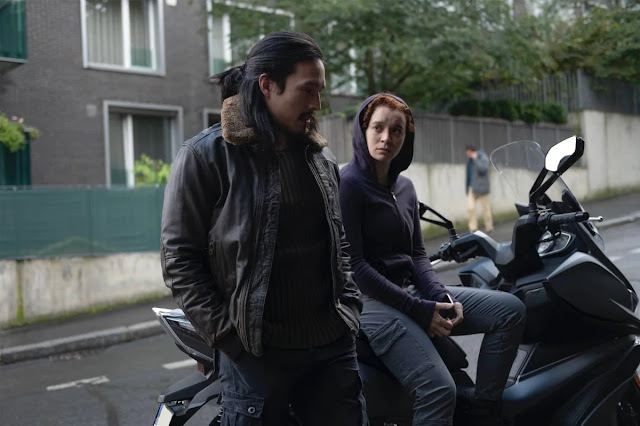
Sharon’s situation affects Sam deeply, and further complicates his relationship with the looming legacy of Steve Rogers. This is furthered by the discovery that Dr. Nagel backwards engineered supersoldier serum from Isaiah Bradley’s blood for the CIA and Power Broker. Now, Sam has come to wish that he’d destroyed the shield and ended the line. The inner conflict at the heart of the show has hit an all-time low, which perfectly positions Sam for a final three episodes in which he discovers what the idea of Captain America means to him.
Sam’s feelings directly contrast against Bucky's, who still sees the value in what the shield represents. Bucky threatening that he’ll take the shield himself is a nice nod to the comics in which he did become Captain America, but also adds fuel to the antagonism between the two friends. And in contrast to episode two, which felt a bit unrestrained with its buddy comedy quips, the dialogue between Sam and Bucky is top-notch in this episode. The situation itself presents all the substance required to turn up the heat, from Bucky’s reckless prison break to their angered shield debate.
With all of this going on, episode three doesn’t need to offer any more excitement. But, just before the credits roll, we get a surprise appearance from Wakanda; Ayo. Bucky’s connection to the African nation has always been an important part of his modern-day development, but I don’t think anyone was expecting a link to Black Panther in The Falcon and The Winter Soldier. There’s no context to Ayo's arrival just yet, but if Wakanda is getting involved, then perhaps the global situation is far greater than we first thought.
______________HOME_______________
SCREEN SHOTS / POSTERS
